Special Technical Communities (STC) – A Panel Discussion
Livestream: Thursday, July 16th at 7am PT/10am ET/4pm CET/11pm JT
IEEE Computer Society Special Technical Communities (STCs) are online networks of computing professionals who share a common technical, career, or other interest and can be created around any set of ideas that are relevant to the Computer Society. STCs are open communities with their membership open to both members and non-members of IEEE Computer Society and available at no cost. There are currently twenty-one STCs that provide technical, educational, and professional resources on emerging topics, such as Blockchain, Smart and Circular Cities, Autonomous Driving Technologies, Reliable, Safe, Secure, and Time-Deterministic Intelligent Systems, and many more. STC membership is open to both members and non-members at no cost. Anyone, member or not can participate and can propose the creation of new STCs.
This year, several STCs opted to expand their activities and promote new connections by organizing new activities at COMPSAC 2020 . These include the formation of Workshops and invited papers for presentation at the conference. A list is shown below.
In this panel, STC leaders will discuss and share STC relevant information, including but not limited to:
(1) What are STCs? Mission & Visions
(2) What are the major differences between an STC and a TC?
(3) What can we do as an STC? (e.g. online activities, conference technical sponsorship)
(4) Resources available for STCs
(5) STC goals and evaluation
(6) STC member benefits
(7) How to initiate a new STC (e.g. application procedure, committee roles)?
(8) Experiences, success and challenges shared by STC chairs
COMPSAC 2020 Special Technical Community Activities
- The STC, Social Networking: SoNeC – Social Network Computing & Big Data is sponsoring SoNeC 2020: The 1st IEEE International Workshop on Social Network Computing & Big Data whose aim is to provide a forum to foster interactions between researchers and developers interested in Social Network computing and Big Data, and to give attendees an opportunity to interact with experts in academia, industry, and government. Selected and extended version of papers presented will be published in journal special issues.
- The STC, Parallel Models and Systems: DataFlow and Beyond (DFM)is offering its 8th workshop entitled DFM – Data Flow Models & Extreme Scale Computing. The workshop aims to highlight advancements to event-driven and data-driven models of computation for extreme scale computing as well as parallel and distributed computing for high-performance computing. It also aims at fostering exchange between dataflow practitioners at the theoretical and practitioner levels.
- The STC, Big Data has organized CCR 2020, the 1st IEEE International Workshop on Emerging Topics in Cognitive Computing and Robotics. This workshop focuses on challenges in effective storage, processing, and analytics of the massive amounts of data used in developing cognitive robotics.
- The STC Information technology (IT) is proposing AIML 2020, the 3rd IEEE International Workshop on Advances in Artificial Intelligence & Machine Learning: Addressing Risks & Concerns. The workshop’s aim is to examine risks and concerns of AI and machine learning (ML) and showcase scientific, technical, and practical advances in addressing them. The workshop will also highlight recent advances in AI and ML and their applications, cover AI strategy and policy, examine development and deployment challenges, and discuss concepts such as AI for good, Responsible AI, and Explainable AI. It is an interactive forum for AI researchers, practitioners and business executives for discussion on key issues and challenges and practices related to AI applications, and for sharing case studies and application experience.
- The symposium ITIP: IT in Practice is also organized by the STC Information technology (IT). Aligned with the conference theme “Driving Intelligent Transformation of the Digital World,” the symposium focuses on diverse elements necessary to successfully architect, design, engineer, configure, and field IT applications as well as application-oriented research outcomes. It also covers new risks and concerns of IT and its applications.
Panelists
 Jean-Luc Gaudiot is Distinguished Professor of Electrical Engineering and Computer Science at the University of California, Irvine (UCI). He is a Fellow of IEEE and AAAS, and a Professional Member of Eta Kappa Nu. He has worked in a leadership position for the IEEE and the IEEE Computer Society for many years, serving as vice President of the Educations Board and of the Publications Board, and 2017 President.
Jean-Luc Gaudiot is Distinguished Professor of Electrical Engineering and Computer Science at the University of California, Irvine (UCI). He is a Fellow of IEEE and AAAS, and a Professional Member of Eta Kappa Nu. He has worked in a leadership position for the IEEE and the IEEE Computer Society for many years, serving as vice President of the Educations Board and of the Publications Board, and 2017 President.
At UCI, he was Department Chair for 6 years during which the USNWR® rankings rose from 42 to 28 (46 to 36 for the EE program) and 12 faculty members were recruited. Prior, he was Professor of Electrical Engineering at the University of Southern California (USC).
He frequently acts as consultant to companies that design high-performance computer architectures and as expert in patent infringement and product liability cases. His research interests include the architecture of multiprocessors, a domain in which he has published nearly 300 papers. His research has been sponsored by NSF, DoE, and DARPA, as well as industrial organizations. He received a PhD in Computer Science from University of California, Los Angeles, in 1982.
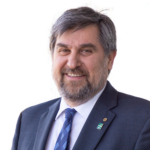 Dejan S. Milojicic, Hewlett Packard Enterprise Distinguished Technologist and IEEE Computer Society president 2014. A catalyst of change and a technical leader in systems software. He is currently a director of the Systems and Software group at Hewlett Packard Labs, Palo Alto, CA (1998-). He worked at the OSF Research Institute in Cambridge, MA (1994-1998) and at the Mihajlo Pupin Institute in Belgrade, Serbia (1983-1991). He received his PhD from University of Kaiserslautern, Germany (1993); and his MSc/BSc from Belgrade University, Serbia (1986/1983). He was a technical director of the Open Cirrus Cloud Computing Testbed (2007-2011), which had academic and industrial sites in the US, Europe, and Asia. He has published over 200 papers and 2 books; He has 50 granted patents and 136 patent applications. He is an IEEE Fellow (2010), ACM Distinguished Engineer (2008), and HKN and USENIX member. More information can be found at https:/dejan.milojicic.com.
Dejan S. Milojicic, Hewlett Packard Enterprise Distinguished Technologist and IEEE Computer Society president 2014. A catalyst of change and a technical leader in systems software. He is currently a director of the Systems and Software group at Hewlett Packard Labs, Palo Alto, CA (1998-). He worked at the OSF Research Institute in Cambridge, MA (1994-1998) and at the Mihajlo Pupin Institute in Belgrade, Serbia (1983-1991). He received his PhD from University of Kaiserslautern, Germany (1993); and his MSc/BSc from Belgrade University, Serbia (1986/1983). He was a technical director of the Open Cirrus Cloud Computing Testbed (2007-2011), which had academic and industrial sites in the US, Europe, and Asia. He has published over 200 papers and 2 books; He has 50 granted patents and 136 patent applications. He is an IEEE Fellow (2010), ACM Distinguished Engineer (2008), and HKN and USENIX member. More information can be found at https:/dejan.milojicic.com.
 John Walz is a 49-year IEEE member and has served the IEEE Computer Society since 1980, most recently as the Computer Society President and Vice President for Technical & Conference Activities.
John Walz is a 49-year IEEE member and has served the IEEE Computer Society since 1980, most recently as the Computer Society President and Vice President for Technical & Conference Activities.
A Senior Consultant at Shreya Business Solutions, Walz retired from Lucent Technologies as a Senior Manager, Quality Strategy. During his more than three-decade-long career in information technology, he gained in-depth experience with software development, managing software, and hardware development. Walz also has extensive experience in implementing process improvement techniques such as Baldrige, ISO 9001, TL 9000, and SEI Capability Maturity Model Integrated (CMMI).
An IEEE Senior Member, Walz was appointed to the IEEE-CS Standards Activities Board and served as Secretary and Chair. He served on the IEEE Conference Publications Committee in 2009-2010. He was a member of the IEEE-CS Awards Committee and served as the Hans Karlsson Award Chair from 2003-2006. He was Planning Chair and Quality Management Study Group Chair for the IEEE-CS Software and Systems Engineering Standard Committee (S2ESC) in 2004, and was part of the IEEE-CS Distinguished Visitor Program. As President, he co-chaired the Industry Practitioners ad hoc of IEEE TAB, and has been appointed to the IEEE Conference Committee in 2013.
Walz is a Golden Core member and recipient of the Distinguished Service and Meritorious Service Award. Previously, he was Local Arrangements Chair for Computer Software Applications Conference (COMPSAC) under Dr. Steven Yau’s leadership.
Walz published the “TL 9000 Quality Management Standard for Telecommunications” chapter of The ISO 9000 Handbook (4th ed., McGraw-Hill). He is the co-author with S. Kathy Land on Practical CMMI Software Process Documentation- Using IEEE Software Engineering Standards (CS Press/Wiley, 2005), Practical Support for ISO 9001 Software Project Documentation: Using IEEE Software Engineering Standards (2006), and IEEE Software Engineering Standards Support for ISO 9001: Getting Your Organization Started (2007). He co-authored Practical Support for Lean Six Sigma Software Process Definition Using IEEE Software Engineering Standards (2008) with Land and Douglas B. Smith. He co-authored “Time to Push the Cloud,” IT Professional 2010 with D. A. Grier.
Walz earned his bachelor’s and master’s degrees in electrical engineering from Ohio State University.
 Dr. Arnold Pears is a Chaired Professor and Head of the Department of Learning in Engineering Sciences at the KTH Royal Institute of Technology in Stockholm, Sweden. His research explores how students experience and interact with Science and Engineering disciplines. Through this understanding they inform curricular and educational development for learners of all ages. Professional: Board of Governors, IEEE Computer Society (2012-2014) and IEEE Education Society 2018-2020. Chair IEEE STC for Education. 2019 VP Publications, IEEE Education Society.
Dr. Arnold Pears is a Chaired Professor and Head of the Department of Learning in Engineering Sciences at the KTH Royal Institute of Technology in Stockholm, Sweden. His research explores how students experience and interact with Science and Engineering disciplines. Through this understanding they inform curricular and educational development for learners of all ages. Professional: Board of Governors, IEEE Computer Society (2012-2014) and IEEE Education Society 2018-2020. Chair IEEE STC for Education. 2019 VP Publications, IEEE Education Society.
 Dr. Cano has a PhD in Engineering, and Masters’ Degree in Criminology, among others, who works as officer with military rank in Technical Services Command in the Civil Guard, Spain. He is an IEEE senior member and belongs to the societies of Education, Computer, Social Implications of Technology, initiatives such as IEEE CS eGovernment or IEEE Cyberethics and Cyberpeace.
Dr. Cano has a PhD in Engineering, and Masters’ Degree in Criminology, among others, who works as officer with military rank in Technical Services Command in the Civil Guard, Spain. He is an IEEE senior member and belongs to the societies of Education, Computer, Social Implications of Technology, initiatives such as IEEE CS eGovernment or IEEE Cyberethics and Cyberpeace.
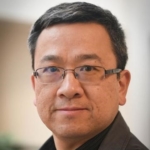
Dr. Chen Liu is currently an Associate Professor in the Department of Electrical and Computer Engineering at Clarkson University, Potsdam, New York, USA. He is currently the chair of IEEE CS STC on Autonomous Driving Technologies. His research interests include the interaction between hardware and system software, cybersecurity, biometrics, as well as solving the computing needs for emerging applications, such as autonomous vehicles.
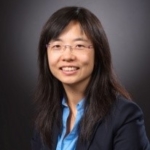 Yuhong Liu, Assistant Professor at Department of Computer Engineering Santa Clara University, received her B.S. and M.S. degree from Beijing University of Posts and Telecommunications in 2004 and 2007 respectively, and the Ph.D. degree from University of Rhode Island in 2012. Her research interests include trustworthy computing and cyber security of emerging applications, such as online social media, Internet-of-things, and cloud computing. She actively involves in voluntary services and is currently serving as the chair of IEEE STC Executive Committee Board, the Chair of IEEE Special Technical Community on Social Networks (STCSN), Vice Chair (Special Technical Communities) of the IEEE Computer Society’s MGA Board, and a member of IEEE Computer Society Technical Meeting Request Committee (TMRC).
Yuhong Liu, Assistant Professor at Department of Computer Engineering Santa Clara University, received her B.S. and M.S. degree from Beijing University of Posts and Telecommunications in 2004 and 2007 respectively, and the Ph.D. degree from University of Rhode Island in 2012. Her research interests include trustworthy computing and cyber security of emerging applications, such as online social media, Internet-of-things, and cloud computing. She actively involves in voluntary services and is currently serving as the chair of IEEE STC Executive Committee Board, the Chair of IEEE Special Technical Community on Social Networks (STCSN), Vice Chair (Special Technical Communities) of the IEEE Computer Society’s MGA Board, and a member of IEEE Computer Society Technical Meeting Request Committee (TMRC).
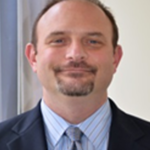
Eric Berkowitz is the Director of Membership and Education with the IEEE Computer Society. Eric joined the organization in November 2013 and has overall responsibility to develop the membership and education strategy and overall management of the programs, products and services that are needed to improve and strengthen the IEEE Computer Society membership.
Eric has devoted his entire professional career to non-profit development with more than 20 of membership development experience, He holds a bachelor’s degree in political science from West Virginia University.
